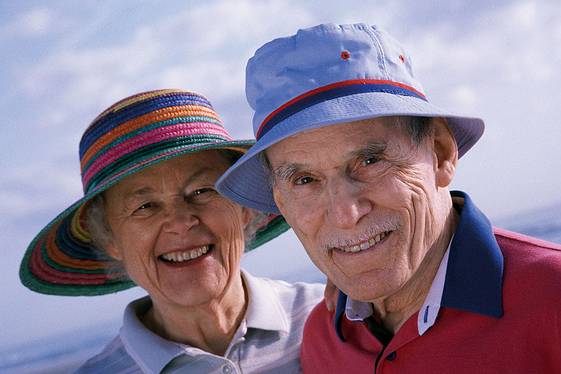
What does it take to age successfully? It’s a question researchers began to explore in earnest in the past 20 years, when it became clear that our understanding of aging no longer fit a world of active adults in their 80s, 90s, and beyond.
What scientists have found is thoroughly fascinating. No psychological trait(特性) is as important to your health as the ability to cope with life’s craziness. Yes, nutrition and exercise are important elements of a healthy, disease-resistant body. But what matters as much as, if not more than, daily concerns with food and fitness are the attitudes and mindsets(精神状态) that guide our lives.
For example, when 600 people age 85 and older were asked to identify(识别) the key components of successful aging, the answer that topped(问鼎) their list surprised even the experts: resilience(恢复力). They defined it as being able to adjust to circumstances, focus on gains rather than losses, and appreciate blessings.
Resilience is what makes kids who grow up surrounded by poverty or cruelty still able to get into top universities and become successful. It’s why some people rebuild after hurricanes, despite the challenges and hardships. It’s why you say of someone who’s been diagnosed(诊断) with cancer, or who has lost their husband, or whose business has failed: “I can’t believe how well she’s handling this.” A resilient person is like a rubber band — capable of being stretched(延伸) and stretched, but always able to snap back(很快恢复).
Everyone has some measure of resilience, says aging expert Adam Davey, PhD, an associate professor at Temple University in Philadelphia. Resilience is inherent to(固有的,内在的) any successful species. But it also develops naturally with age as we accumulate wisdom from years of coping with challenging situations.

